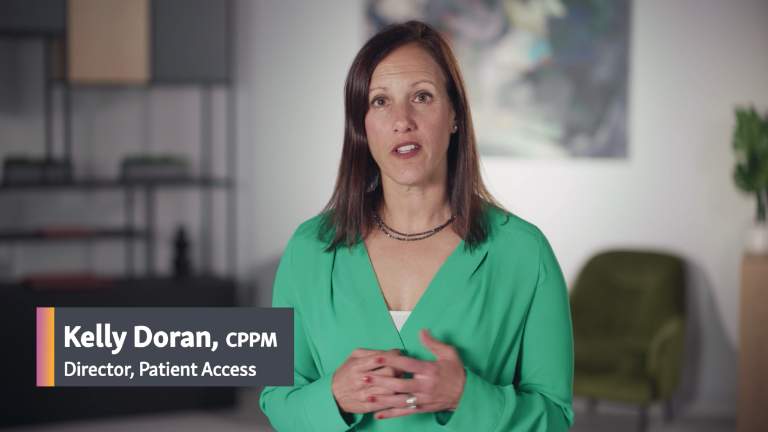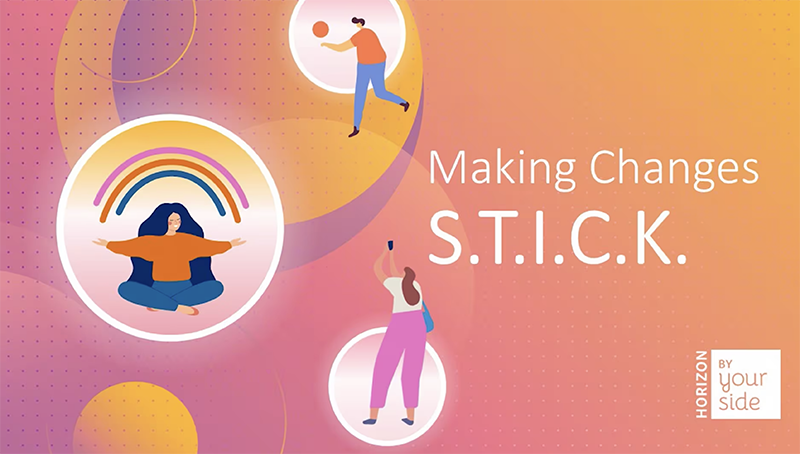English: Today, we will be talking about ways you can take charge of your health…
SPANISH: Hoy vamos a hablar cómo puede hacerse cargo y tomar control de su salud.
English: Specifically, three skills to help you better understand information you get from your doctor. These are three simple skills or tips you can use at your next doctor's appointment.
SPANISH: Específicamente, hay tres maneras de entender mejor la información que reciba de su médico y usar estos tres pasos para tomar control de su salud. Son tres simples destrezas o trucos que puede usar en su próxima cita médica.
English: Ask, Repeat, Talk, are three skills to help you understand and act on the information your doctor gives you. Ask about the information you receive to make sure you understand. Repeat what you hear to make sure you know what to do. Talk with confidence and be specific so the doctor knows how you are doing and your needs.
SPANISH: Preguntar sobre la información que reciba para asegurase que entiende. Repetir lo que escuchó para asegurarse que sabe lo que tiene que hacer. Hablar con confianza, y ser específico para que el doctor sepa como está y qué es lo que necesita.
English: We will start with ‘ASK’. Learn to be curious. Ask questions. Asking questions is important to have good communication with your doctor. If you don't ask questions, they may think that you know the answer or that you don't want more information. Curiosity, wanting to know more, can help you better understand the information you receive. And asking, can help you collaborate, be a partner with your doctor; to work more actively with your doctor on how to take care of your health. If you have any doubts...... Ask, don't wait to be asked. Take charge of your health! Well, and what can I ask?
SPANISH: Comenzaremos con 'PREGUNTAR'. Aprenda a ser curioso. Haga preguntas. El preguntar es importante para tener una buena comunicación con su médico. Si no hace preguntas, ellos puedan pensar que usted sabe la contestación o que usted no quiere más información. La curiosidad, el querer saber más, le puede ayudar a mejor entender la información que recibe. Y el preguntar, le puede ayudar a colaborar con su médico; a trabajar más activamente con su doctor en cómo cuidar su salud. Si tiene alguna duda… Pregunte, no espere a que le pregunten. ¡Tome riendas en su salud! Bueno, ¿Y qué puedo preguntar?
English: There are three important questions that you should always remember to ask at any medical appointment: What do I have? What is my problem? What do I need to do?… and Why is it important for me to do this? If you have any doubts, or do not understand something, remember you can ask anything.
SPANISH: Hay tres preguntas importantes que siempre debe recordar hacer en cualquier cita médica: ¿Qué es lo que tengo? ¿Cuál es mi problema de salud? ¿Qué tengo que hacer?… y ¿Porqué es importante que haga lo que me dice? Si tiene alguna duda, o no entiende algo, recuerde que usted puede preguntar cualquier cosa.
English: Now, a great question is... “What if I ask, but still don’t understand? Then, tell your doctor.
SPANISH: Ahora, la gran pregunta…
¿Qué pasa si yo hago una pregunta y todavía no entiendo? Entonces, déjele saber a su doctor que todavía no entiende.
English: Let your healthcare team know if you still don’t understand what you need. You might say, “This is new to me. Will you please explain that to me one more time?” Don’t feel rushed or embarrassed if you don’t understand something. Ask your healthcare provider again. Studies show that people who understand their doctor's instructions and recommendations better make fewer mistakes when taking their medicines or preparing for a medical exam or procedure. So, do not stop asking! That's the first skill. Let's talk about the second one.
SPANISH: Si no entiende, hágaselo saber a su médico o a su equipo de salud Podría decir: "Esto es nuevo para mí. Por favor, explícamelo una vez más. ” o “¿Podría repetir la información? No se sienta apurado o avergonzado si no entiende algo. Pregunte de nuevo. Estudios demuestran que las personas que entienden mejor las instrucciones y recomendaciones de su médico, cometen menos errores al tomarse sus medicinas o al prepararse para algún examen o procedimiento médico. Así que ¡No deje de PREGUNTAR! Esa es la primera destreza. Veamos cuál es la segunda.
English: To take control of your health, the second skill we must remember is to REPEAT. Repeating is an opportunity for you to give your own understanding of what the healthcare team has explained to you or shown you. This idea could be applied to many things: a pharmacist telling you how to split a pill, a physical therapist showing you how to wear a brace, a doctor showing you how to monitor your blood sugar and other things that are told or shown to you that may be helpful to repeat.
SPANISH: Para tomar control de su salud, la segunda destreza que debemos recordar es REPETIR. Repetir es una oportunidad para ver si ha entendido lo que su médico le explicó. Porque al repetir tiene la oportunidad de explicarle a su doctor, en sus propias palabras, lo que ha entendido. Esta idea se puede aplicar a muchas cosas, por ejemplo: Cuando el farmacéutico le dice cómo partir una píldora o tableta en dos; cómo dividirla. Cuando el terapista físico, o fisioterapeuta, le enseña cómo ponerse o cómo usar un aparato ortopédico. Cuando el doctor le explica cómo medir y controlar su nivel de azúcar en la sangre. En fin, repetir es una destreza muy útil. Le ayuda a ver si ha entendido cualquier tipo de información que le expliquen, o que le enseñen.
English: When you repeat the information remember this tip: Use your own words rather than simply holding the doctor or nurse’s words in your memory and racing to say the exact same thing. Take a moment to think about it and then say it in the words that you would use if you were explaining it to a friend or family member. Now let's look at the third skill.
SPANISH: Cuando repita la información recuerde este detalle: Use sus propias palabras. No se apresure, ni trate de recordar o usar las mismas palabras del doctor o la enfermera. Tome un momento para pensarlo y luego, repita la información como si le estuviera explicando a un amigo o a un familiar. Ahora veamos la tercera destreza.
English: Let’s look at using the third skill – TALK. Many of us hold back when we talk to our doctors or nurses; we dare not speak. Sometimes, we don’t know what information to share. You may feel pressured if your healthcare team seems rushed or if you feel they are not listening to you. Use simple words to express yourself and get your message across. Don't be afraid to express yourself, to say what you feel or are worried about. Express yourself and share information that will help your healthcare team guide your care and help you work better with them. Expressing yourself will help you to be heard, and make sure your needs are met. Expressing yourself , sharing, will also help you remember information, and give you more control over your health. Let's see how we can express ourselves.
SPANISH: Hablemos de la tercera destreza – Conversar. A muchos de nosotros nos sucede que cuando hablamos con nuestro médico, nos contenemos, nos restringimos; no nos atrevemos hablar. A veces, no sabemos qué información compartir. Tal vez nos sentimos apresurados, pensamos que el doctor está ocupado y no tiene tiempo de escucharnos. Use palabras simples para expresarse y transmitir su mensaje. No tenga miedo de expresarse, de decir lo que siente o le preocupa. Compartir información, le ayudará a que pueda relacionarse mejor, a trabajar mejor, con su médico o equipo de salud. Expresarse le ayudará a que le escuchen … y que se satisfagan o se resuelvan sus necesidades médicas. Y también, el compartir, el expresarse, le ayudará a poder recordar información más fácilmente. Sobretodo, podrá lograr un mejor control sobre su salud. Veamos cómo podemos expresarnos.
English: When sharing information with your doctor or healthcare team , it is useful to use “I” statements. “I” statements offer a way for you to let your doctor or healthcare team know if you feel rushed, confused, or threatened. Remember that it is important for your doctor to know how you’re feeling. The following are all examples of assertive “I” statement messages: “I need to ask some questions.” “I feel confused.” “I prepared for this appointment and want to show you some of the changes I’ve tracked.”
SPANISH: Al compartir información con su médico, es muy útil usar las afirmaciones o expresiones que comienzan con la palabra “yo”. Usando "yo" es una buena manera de decirle a su médico si se siente apurada, o confundida. Recuerde que es importante que su médico sepa cómo se siente. Aquí tenemos varios ejemplos de expresiones usando "Yo". “Yo necesito hacerle unas preguntas.” “Yo me siento confundida.” “Yo me preparé para esta cita/para esta consulta y aquí le muestro algunos de los cambios que he observado.”
English: In summary: Asking, Repeating, and Talking are three skills that will help you take control over your health. To help you understand and act on the information you receive from your doctor, remember these three steps: Ask about the information you receive to make sure you understand. Repeat what you hear or receive, to make sure you know what to do. And Talk – speak with confidence, express what you are feeling and be specific so that the doctor understands how you are doing and what are your needs. We hope this information will help you in any doctor’s appointment and help in taking charge of your health.
SPANISH: En resumen: Preguntar, Repetir, y Conversar son las tres destrezas que le ayudarán a tomar el control sobre su salud. Para entender y poner en práctica la información que reciba de su médico, recuerde los tres pasos: Preguntar sobre la información que reciba para asegurase que entiende. Repetir lo que oye o recibe, para asegurarse que sabe lo que tiene que hacer. Y Conversar - hablar con confianza, expresar lo que siente y ser específico para que el doctor sepa cómo está y qué es lo que necesita. Esperamos que esto le ayude en cualquier cita médica y así logre un mejor control sobre su salud.
English: Thank you!
SPANISH: ¡Gracias!



